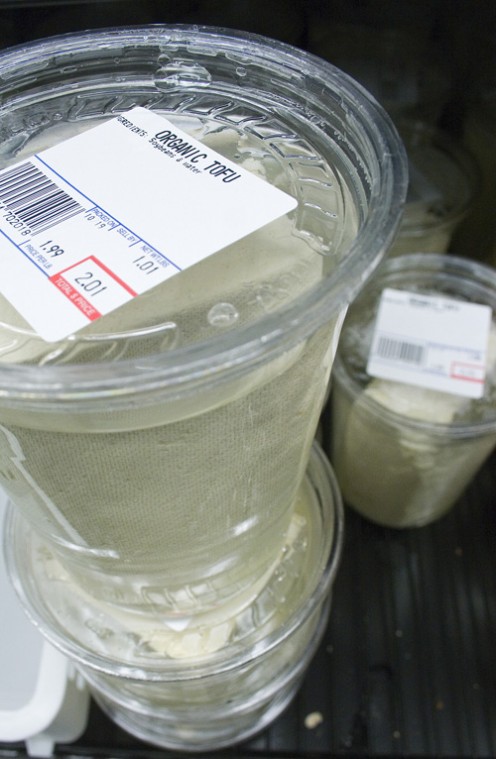Researchers find health risks in certain types of soy
Oct 23, 2008
Last updated on May 13, 2016 at 03:55 p.m.
University researchers have found that some types of soy products are not as healthy as consumers might believe them to be.
Soy is generally believed to be a health food, available in a variety of forms. However, tablets, protein bars, protein powder and textured vegetable protein should be consumed with caution, said William Helferich, a professor of food science and human nutrition who has researched the effects of soy.
University researchers said only products including the whole soybean are believed to be safe and healthy for all consumers. Products that modify the whole soybean, extracting some of its vital nutrients in the processing system, could promote the growth of cancer cells, especially breast cancer in women.
However, Helferich said soy flour, milk, yogurt, cheese, tofu and whole beans are not only safe, but considered healthy.
Get The Daily Illini in your inbox!
Hong Chen, an assistant professor involved with the University’s soy research, said they have found that Asian countries that consume whole soy products have a lower cancer rate than those that do not.
“Asian countries have a low incidence of breast cancer and colon cancer, and our hypothesis is that this is because a large component of their diet is soy,” said Chen.
Richard Chung, junior in ACES, has worked with Chen on one of the University soy research projects and enjoys soy.
“I like tofu. I’ve eaten it all my life,” he said. “There is a lot of research that says (soy) is healthy.”
Vanessa Lena, senior in LAS, said she prefers her soy products over dairy alternatives and does not want to fall victim to false research claims.
“A couple years back, weren’t they saying there was something wrong with strawberries?” she said. “They are always saying that about a food.”
Helferich said he has been conducting research on the estrogen-like effects of soy for 10 years and expects his research to continue for at least another five years.
“Avlimil (a soy-derived supplement) looks like birth control pills. It is made to mimic a female Viagra and is a fairly potent estrogen supplement,” he said. “It is designed to treat sexual dysfunction in women, but it stimulates tumor growth (at the dosage recommended by the manufacturer).”
Natasha Guthrie, senior in Media, said she was aware of recent studies that indicated a link between the estrogen-like component of soy and cancer. However, she also plans to continue eating soy products currently considered safe. Her favorite is soy milk.
“When I read the ingredients, I saw that (my soy milk) had more calcium and vitamins,” Guthrie said. “I feel healthier when I drink it, and I like the taste better than real milk.”
While University researchers are confident their results linking some soy products to estrogen-related cancer are correct, they continue to study how quantity, type and timing affect soy’s relationship with the disease.
“Nowadays consumers are dependent on researchers to tell them how to eat, so we’re trying to prove the type and amount of soy that is most healthful,” Helferich said.






